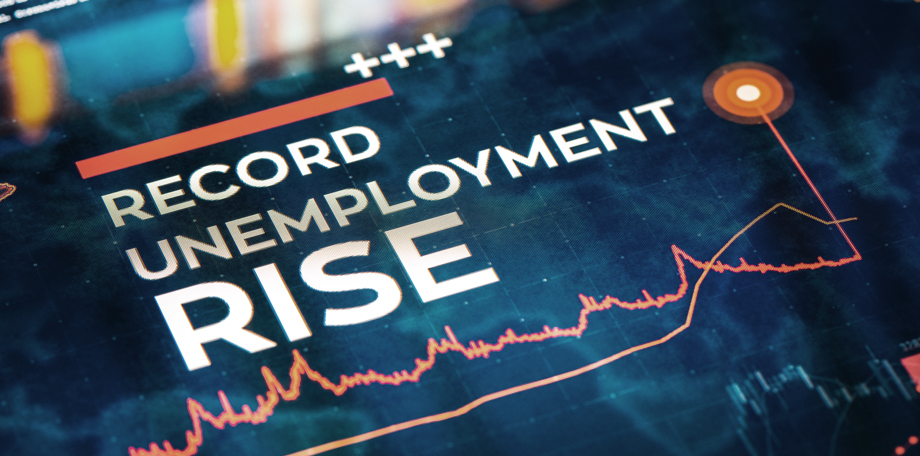As the country begins to reopen, the millions of unemployment insurance claims show that we are still deep in the economic pain of the COVID-19 crisis. For the first time in ten weeks, claims fell to below 2 million for the week ending May 30, 2020, according to the Department of Labor. With 43 million total claims, the layoffs may be slowing, but the number of people out of work is still the highest it’s been since the Great Depression.
With so many people facing unemployment, it may not seem like the right time to look for a job. However, experts say it’s not the time to hit the brakes in your job search. Even with all of the upheaval underway, you should take advantage of this time to strategize on selling yourself going forward. The best way to do that is to update your resume.
Who’s Hiring?
But first, who is actually hiring right now? There are companies still hiring full-time employees for permanent positions. We’ve all heard that Amazon and grocery stores are hiring, but there are lots of organizations that are experiencing a high demand in their services due to the pandemic.
This list of industries compiled by Fast Company shows who is currently hiring:
- Shipping and delivery companies (including Amazon who announced they are hiring 100,000 workers)
- Online learning companies
- Grocery stores and delivery services
- Remote meeting and communication companies
- Data specialization
- Healthcare
- Biotechnology
- Pharmaceuticals
- Working families who need childcare
Resurrect your Resume
As JMA’s professional resume writer, I’ve been one of the lucky workers who has been busy during COVID-19. And while many people are being cautious with their money right now, they also understand that having a professional write their resume is money well-spent to help them stand out among a sea of job applicants.
Not only do professional resume writers know the intricacies of Applicant Tracking Systems (ATS) and search engines, we know how to draw valuable content from our clients and craft that into a story for employers to remember.
Mind the Gap
If you’ve been laid off during the pandemic, you may possibly end up with an employment gap that is longer than you would have liked on your resume. Don’t hide from it – embrace it!
When 9/11 and the economic recession of 2008 both happened, I worked with a lot of clients who had employment gaps for the first time in their careers. My advice hasn’t changed since then, and it’s to be completely honest. These are tough times, and an employer is not going to hold it against you because you got laid off during COVID-19. This is a universal issue that is affecting everyone.
The key to explaining employment gaps is to show how you’ve used the time to better yourself. For example, while my husband was furloughed from his job a couple of months ago, he studied Spanish. He works with a lot of employees from Latin America at his company, so learning Spanish improves his communication with colleagues. That’s worthy of a mention on your resume. Highlight any skills you’ve learned or enhanced from online courses or any new certifications you’ve achieved during your employment gap on your resume.
This is especially true for technology skills. We’re all using Zoom for meetings these days, but chances are, you’ve also had to become familiar with other computer programs or systems during the pandemic. Make a list of your newfound proficiencies for your resume. If you have any kind of data literacy, be sure to note that as well. Companies desperately need help with understanding and interpreting data so that they can use their new data to make decisions about the future.
Even the ability to successfully work from home should now be included in your resume. After all, working with geographically dispersed team members is a new skill you have developed, and it shows that you can be flexible, creative and innovative. Being able to adapt and perform to get your work done during an ongoing crisis, including distractions like kids and spouses also being home, is no small feat. So, don’t be afraid to show off your perseverance!
Career Changers
Of the clients I’ve worked with over the past three months, about a quarter of them are not only looking for a new job, they are looking for an entirely new career. Some people are transitioning out of hard-hit industries that will take a long time to recuperate such as travel and hospitality. Others were already looking for a career change before the pandemic hit.
Regardless of what spurred the change, you need to think hard about the skills you need in your new career and how to showcase those on your resume. You can’t just list skills on paper; you need to demonstrate how they will translate to the new career. For example, if you say you have good communication skills on your resume, you need to prove it. Do you develop presentations? Do you teach? Do you train? Do you develop and deliver webinars? All of these achievements back up the fact that you have solid communication skills and can put those skills to good use in your new career.
As a professional resume writer, it’s my job to extract your story and share it in your resume to make you stand out in a crowded job seeker market.
In addition to your resume, your LinkedIn profile also needs some attention right now. A recent study delved into how a LinkedIn profile affects the interview chances of job applicants. ResumeGo used a sample size of 24,570 fictitious job applicants and found that resumes with a link to a comprehensive LinkedIn profile had a 71% higher chance of receiving interview callbacks than resumes that had no LinkedIn profile or even a bare boned one.
Bulking up your LinkedIn profile and being active on the platform for networking purposes takes work, but it’s well worth the effort.
Related: How to Make your LinkedIn Profile Work for You
References
Good references are always important, and some resume writing services are now suggesting actually listing former supervisors, clients or colleagues who can vouch for you on your resume. I disagree with listing names and phone numbers on your resume, but I do agree with adding value to your job application through personal connection. Instead of references, I like to use quotes in resumes. I’ll review LinkedIn recommendations or past performance evaluations and pull one to two powerful sentences that best explain your value proposition.
It’s important to keep the quote short and highlight it in the first top half of the resume. Although I use job titles and company names rather than first names, this quote successfully establishes credibility and creates a personal connection.
The Future of Resumes
We all know that a resume has just 6 seconds to grab the attention of the employer. But in today’s chaotic world, that could be even less due to shorter attention spans. One trend I’ve seen in recent months is employers asking applicants to submit video resumes. HR professionals cannot currently interview people in person due to social distancing guidelines, but they still want to get a feel for someone’s character and mannerisms to see if they would be a good fit for their team. Enter the video resume.
Remember the movie “The Intern” with Robert De Niro and Anne Hathaway from 2015? Senior citizen Ben (Robert De Niro) applies for an internship with a video resume. He gets a call for an interview and eventually the internship. A video can work as a personal cover letter to show an employer why you are a good fit for the role.
Be Prepared
If you are lucky enough to still be working now, be prepared for the future. Most people wait until they are forced into a job search situation to update their resume or LinkedIn profile, and they are left scrambling. Use the time you are saving commuting to the office right now to give yours an overhaul or engage a professional resume writer’s service. As this year has shown, we should all be prepared for anything.
Whether you are experiencing a layoff, furlough or salary reduction in association with COVID-19 or simply want to be prepared for what lies ahead, now is the time to adapt your resume and LinkedIn profile for the current times. A professional resume writer can help you identify the points in your career or employment gap that should be spotlighted in your resume. Remember, a potential employer doesn’t necessarily want to know your entire employment history so sometimes it’s necessary to disassociate yourself from things that you think were important in your career. It’s a better option to align your resume with the specific job posting or job type you are searching for.
A job search during this Coronavirus crisis takes patience and perseverance as well as a solid strategy. Our new ebook Job Search Strategy: Go Beyond the Obvious is a great place to start.




